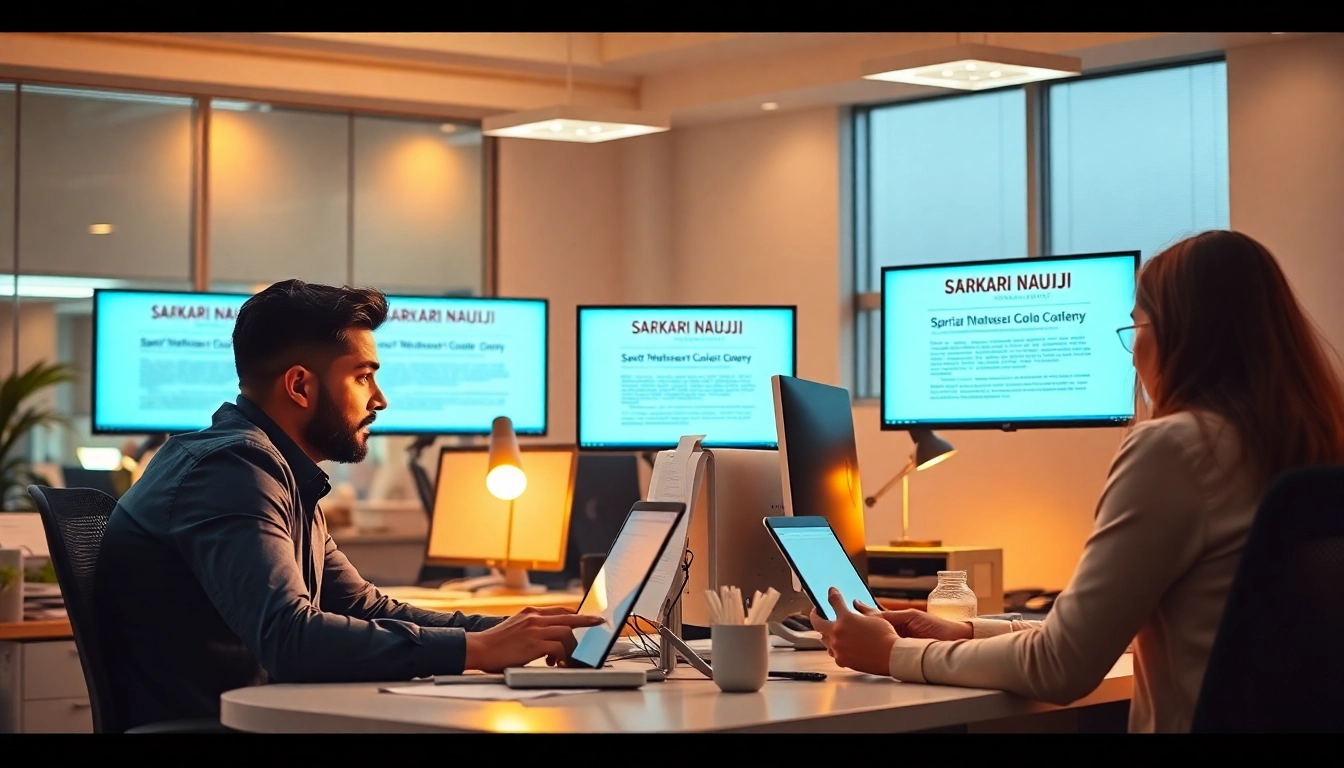Maximize Your Earnings with Freelance Full Remote Jobs in Today’s Market
Unlocking Success with Freelance Full Remote Opportunities
In today’s rapidly evolving digital economy, the demand for versatile, skilled freelancers capable of working entirely remotely has surged exponentially. The ability to collaborate across continents, access diverse projects, and enjoy flexible schedules makes freelance full remote roles an increasingly attractive career path. Whether you’re a seasoned developer, a creative designer, or a specialist in data & AI, the remote freelance landscape offers abundant opportunities to elevate your career while enjoying the benefits of location independence.
Understanding the Benefits of Freelance Full Remote Work
Flexibility and Work-Life Balance Benefits
One of the most compelling advantages of full remote freelancing is unparalleled flexibility. Unlike traditional roles confined to office hours and physical locations, freelancers can tailor their schedules to fit personal productivity peaks and daily commitments. For instance, many successful remote freelancers structure their work around personal peak times, whether that’s early mornings or late evenings, thus enhancing efficiency and job satisfaction. This autonomy allows for better integration of work and personal life, reducing stress and burnout.
Financial Advantages and Top Paid Freelance Roles
Financially, freelance full remote roles often command premium rates, especially for specialized skills. According to recent data, top-paying freelance gigs in technology can fetch daily rates from €600 to €1200, depending on expertise and project complexity. High-demand fields like React, Vue.js, Python, and DevOps command higher premiums, rewarding freelancers for niche skills. Moreover, remote work eliminates commuting costs and time, effectively increasing net earnings and time availability for more projects or leisure.
Access to Global Markets and Diverse Opportunities
Remote freelancing breaks geographical barriers, granting access to international markets and clients. This diversity allows professionals to work on a broader array of projects, gain exposure to multinational companies, and develop a more versatile portfolio. For example, a developer based in Lyon can collaborate with clients in Paris, Marseille, or even across Europe, vastly expanding potential revenue streams and experience. This global reach enriches a freelancer’s skill set, making them more competitive in the long term.
How to Find Reliable Freelance Full Remote Projects
Top Platforms and Resources for Remote Freelancing
Identifying trustworthy platforms is crucial for securing quality projects. Leading portals such as JobForFreelancers, Upwork, Toptal, and Freelancer.com are popular starting points. These platforms vet clients and provide frameworks ensuring fair payments and project management. JobForFreelancers, in particular, emphasizes niche tech-focused opportunities across major French cities, with over 169 active missions, including many that facilitate remote work, making it an invaluable resource for professionals looking for specialized, high-paying projects.
Identifying High-Paying Clients and Quality Missions
High-paying clients often share characteristics such as clear project scope, transparent payment terms, and consistent communication. To identify such clients, freelancers should examine client reviews, project histories, and payment histories on freelance platforms. Building a portfolio that highlights successful projects, especially those that deliver measurable value, can attract better-paying clients. Additionally, participating in niche communities, forums, and industry networks enhances visibility among premium clients seeking top-tier talent.
Building a Strong Freelance Profile for More Opportunities
Your profile is your digital storefront. A compelling profile includes a professional photo, a concise yet comprehensive bio, detailed skills, and examples of past work. Highlighting certifications, expertise in high-demand technologies like React or Python, and client testimonials can significantly boost credibility. Regularly updating your portfolio, optimizing keywords for searchability, and maintaining an active presence on relevant platforms will position you as a top candidate for lucrative remote projects.
Tips for Managing and Excelling in Full Remote Freelance Roles
Effective Communication and Time Management Strategies
Clear, proactive communication is vital for remote success. Setting expectations early, establishing regular check-ins, and leveraging tools like Slack, Zoom, or Microsoft Teams facilitate seamless collaboration. Time management becomes critical—using techniques such as Pomodoro, time blocking, or task prioritization helps maintain productivity. Chunking work into manageable segments prevents burnout and ensures consistent delivery of high-quality results.
Tools and Technologies for Seamless Remote Collaboration
Using the right tools enhances remote productivity. Version control systems like Git for code collaboration, project management tools such as Trello, Asana, or Jira help track progress. Cloud storage solutions like Google Drive or Dropbox enable easy file sharing. Automation tools, time-tracking apps like Toggl, and communication platforms streamline workflow and ensure accountability, making remote work as efficient as in-office setups.
Maintaining Productivity and Work Quality Remotely
Creating a dedicated workspace free from distractions fosters concentration. Establishing routine work hours signals professionalism and helps clients trust your reliability. Regular breaks, physical activity, and mindfulness practices contribute to sustained focus and mental clarity. Continual upskilling through online courses and industry webinars keeps skill sets current, ensuring the quality of work remains competitive and in line with industry standards.
Challenges and Solutions for Freelance Full Remote Professionals
Overcoming Isolation and Staying Motivated
Remote freelancing can sometimes lead to feelings of isolation. Joining online communities like industry-specific forums, attending virtual meetups, or engaging in local co-working spaces can mitigate loneliness. Setting personal goals, celebrating milestones, and maintaining a structured daily routine sustain motivation and a sense of achievement.
Handling Payments, Contracts, and Legal Aspects
Financial security hinges on solid contracts and clear payment terms. Freelancers should use well-drafted agreements covering scope, deadlines, and payment schedules. Platforms often offer escrow services to secure payments. Keeping detailed records of work hours, invoices, and communication is essential during tax season or audits. Consulting legal professionals or using dedicated freelancing legal services can help navigate contractual complexities.
Adapting to Market Changes and Upskilling Regularly
The tech and gig economy landscapes are continually shifting. Staying ahead requires ongoing learning—participating in online courses, attending industry conferences, or engaging with thought leaders on social media. Specializing in emerging niches like AI integration, DevOps, or blockchain can open new high-value opportunities, ensuring sustained relevance and income growth.
Future Trends in Freelance Full Remote Opportunities
Emerging Technologies Impacting Remote Freelancing
Technologies such as artificial intelligence, machine learning, and blockchain are transformative. Freelancers skilled in AI/ML programming or decentralized applications will find themselves at the forefront of high-demand markets. Automation tools will continue to enhance remote workflows, reducing manual overhead and increasing output quality.
Growing Industries and Niche Specializations
Beyond traditional tech, sectors like healthcare IT, finance, and education are increasingly embracing remote freelance models. Niche specialties such as cybersecurity, data visualization, and voice assistant development offer lucrative avenues for freelancers seeking long-term, stable projects.
Strategies to Secure Long-Term Remote Projects
Building long-term client relationships through consistent delivery, transparent communication, and adding value beyond initial scope is key. Offering retainer agreements, demonstrating continuous learning, and delivering measurable results foster trust and repeated engagements. Networking, reputation management, and showcasing case studies position freelancers for sustained success in the remote freelance ecosystem.


